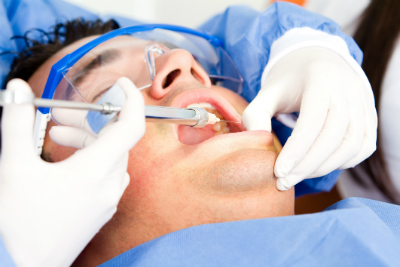Root canal work not so bad after all
Friday, 12 July 2019
 Root canal work is not as bad as people think when compared to other dental procedures. Self-reporting of their dental health suggests that patients find the procedure no worse than other dental work which overturns the popular belief that root canal work is the most unpleasant dental treatment.
Root canal work is not as bad as people think when compared to other dental procedures. Self-reporting of their dental health suggests that patients find the procedure no worse than other dental work which overturns the popular belief that root canal work is the most unpleasant dental treatment.
Dr Tallan Chew, postgraduate student, Adelaide Dental School, University of Adelaide co-authored the study.
“Information about 1096 randomly selected Australian people aged 30-61 was collected through questionnaires, dental records and treatment receipts in 2009. Their self-rated dental health score was checked when they had their dental work and two years later,” she says.
“Patients who had root canal work reported similar oral health-related quality of life as people who had other types of dental work.
“The effect of root canal work on patients’ oral health-related quality of life was compared to other kinds of dental work such as tooth extraction, restoration of teeth, repairs to the teeth or gum treatment, preventative treatment and cleaning.”
Every year millions of root canal treatments are performed globally (more than 22 million in the USA alone), which may have a profound positive effect on the quality of life of patients. A root canal treatment repairs and saves a tooth that is badly decayed or is infected. During a root canal procedure, the nerve and pulp are removed and the inside of the tooth is cleaned and sealed. Most people associate having root canal work with a lot of pain and discomfort.
“There is growing interest in the dental profession to better understand the effect and impact oral diseases and their associated treatment, such as root canal work, have on patients’ quality of life,” says Professor Giampiero Rossi-Fedele, Head of Endodontics at Adelaide Dental School, University of Adelaide who co-authored the study.
“A biopsychosocial view of health is increasingly replacing a purely biomedical model.
“Treatment outcomes need to be re-examined from a patient-based perspective using self-reported measures as this more accurately reflects the patients’ perception of treatment outcomes and the effect it has on their overall well-being.
“Patient-reported treatment outcomes are now the principle driving force behind treatment needs, as opposed to clinician-based treatment outcomes.
“With this change in emphasis, the perspectives of patients and their relatives are important factors in identifying need for treatment, treatment planning, and determining outcomes from any health care intervention as part of shared decision making,” says Professor Rossi-Fedele.
This study was published in the Journal of Endodontics.
Contact details
Email: tallan.chew@adelaide.edu.au
Postgraduate student
Adelaide Dental School
The University of Adelaide
Mobile: +61 (0)414 396 030
Professor Giampiero Rossi-Fedele
Email: giampiero.rossi-fedele@adelaide.edu.au
Head of Endodontics at Adelaide Dental School
The University of Adelaide
Business: +61 (0)8 3138 139
Crispin Savage
Email: crispin.savage@adelaide.edu.au
Website: https://www.adelaide.edu.au/
Media and Communications Officer
University of Adelaide
Business: +61 (0)481 912 465







